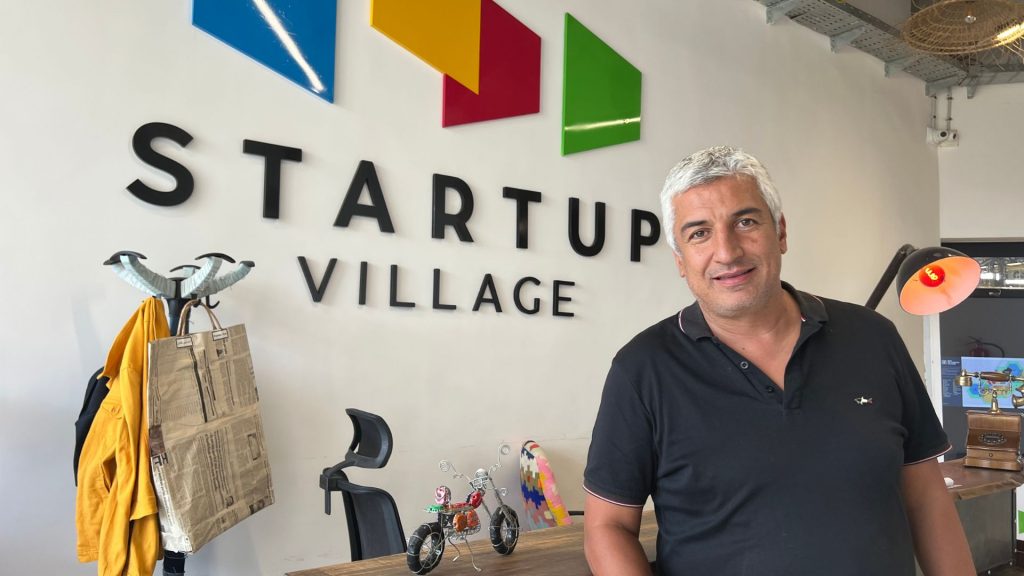HONOR has officially opened pre-orders for its much-anticipated HONOR 400 and HONOR 400 Pro smartphones in South Africa — ushering in a bold new…
Tunisia’s Startup Village sparks collaborative success

In the heart of Tunisia, amidst the echoes of ancient history, a quiet revolution is taking place – a revolution born not out of grandeur, but out of collaboration and shared dreams. It finds its home in Startup Village, a creation that marries innovation with tradition and entrepreneurship with community.
Led by chief executive Iheb Beji, Startup Village has become more than just a physical space; it’s an idea, a philosophy, and a way of life. It represents a community, a diverse tapestry woven from the threads of corporate partnerships, entrepreneurial spirit, and a commitment to co-creation.
“The magic lies in co-thinking,” Beji tells Ventureburn at his offices in Ariana, a coastal city in north-eastern Tunisia. “It’s really co-creation from everybody.”
Here, within the walls of Startup Village, ideas flow freely, unburdened by the constraints of traditional silos. It’s a place where start-ups and established companies converge, where the boundaries between sectors blur, and where creativity knows no limits.
Despite the challenges unique to the region, the initiative thrives. Beji attributed this success to the very diversity that defines it. “The diversity of the ecosystem is the key,” he explains. It’s a diversity that breeds innovation, where solutions emerge not in spite of challenges but because of them.
What makes Startup Village even more remarkable is its origin. It’s not a project fuelled by government grants or institutional backing; rather, it stands as a testament to the power of private initiative. Or, as Beji says, “Startup Village is the capital of the private sector.”
He passionately elaborates on their expansive reach, stating, “[Amongst others] we have partnered with [global healthcare and pharmaceutical company] Sanofi and [public investor] CDC. Medianet, the digital technology company from which Startup Village started, is active in 30 countries worldwide.”
Before Startup Village took up the office space, it was an abandoned building. “In total, we have 2,500 square metres, housing 300 individuals – both corporate and start-ups. We nurture 20 start-ups and facilitate 100 entrepreneurs,” he says.
The initiative spans across sectors, embracing a wide array of technologies.
“The focus is on the diversity of technology,” explains Beji. “We embrace start-ups in retail, e-commerce, e-tourism, and even in parking management systems and mobility services. We host incubators like Makers Factory, delving into the realms of gaming and industry. With Sanofi, we have ventured into healthtech. And there’s agritech, foodtech, and more. Our existence spans two years, yet within this short span, we’ve witnessed remarkable successes.”
Though five of the start-ups have already raised funding, Beji considers the creation of a co-thinking culture as the biggest success story to date. “Really cool thinking [happens here]. If people work together, there is innovation.”
5 reasons to choose Startup Village
- Co-creation ecosystem: Startup Village embodies an innovative concept founded on the principles of sharing and skill transfer. It serves as an ecosystem where digital pioneers from Medianet to Saphir Consult collaborate, drawing inspiration from one another’s expertise.
- Office as a service: Carefully designed spaces foster collaboration, transforming them into more than just workspaces. Startup Village is a shared living environment, accelerating decision-making and enhancing human relationships in a friendly atmosphere.
- Comprehensive start-up support: As an incubator and accelerator, Startup Village offers start-ups a multitude of advantages, from sourcing and networking opportunities to access to financing programmes. With detailed business plans and economic models available, start-ups, their supporters, and potential investors gain clear insights into the projects.
- Media and culinary innovation: Express FM, a renowned Tunisian radio station, extends its expertise to start-ups in media and journalism through media-lab incubation. Additionally, Startup Village hosts FoodLab, a foodtech incubator and experimental cooking workshop space.
- Networking hub: Startup Village acts as a long-term networking space. Robust networking opportunities empower young entrepreneurs to expand their businesses, enhance their knowledge, broaden their influence, and serve their communities more effectively.

